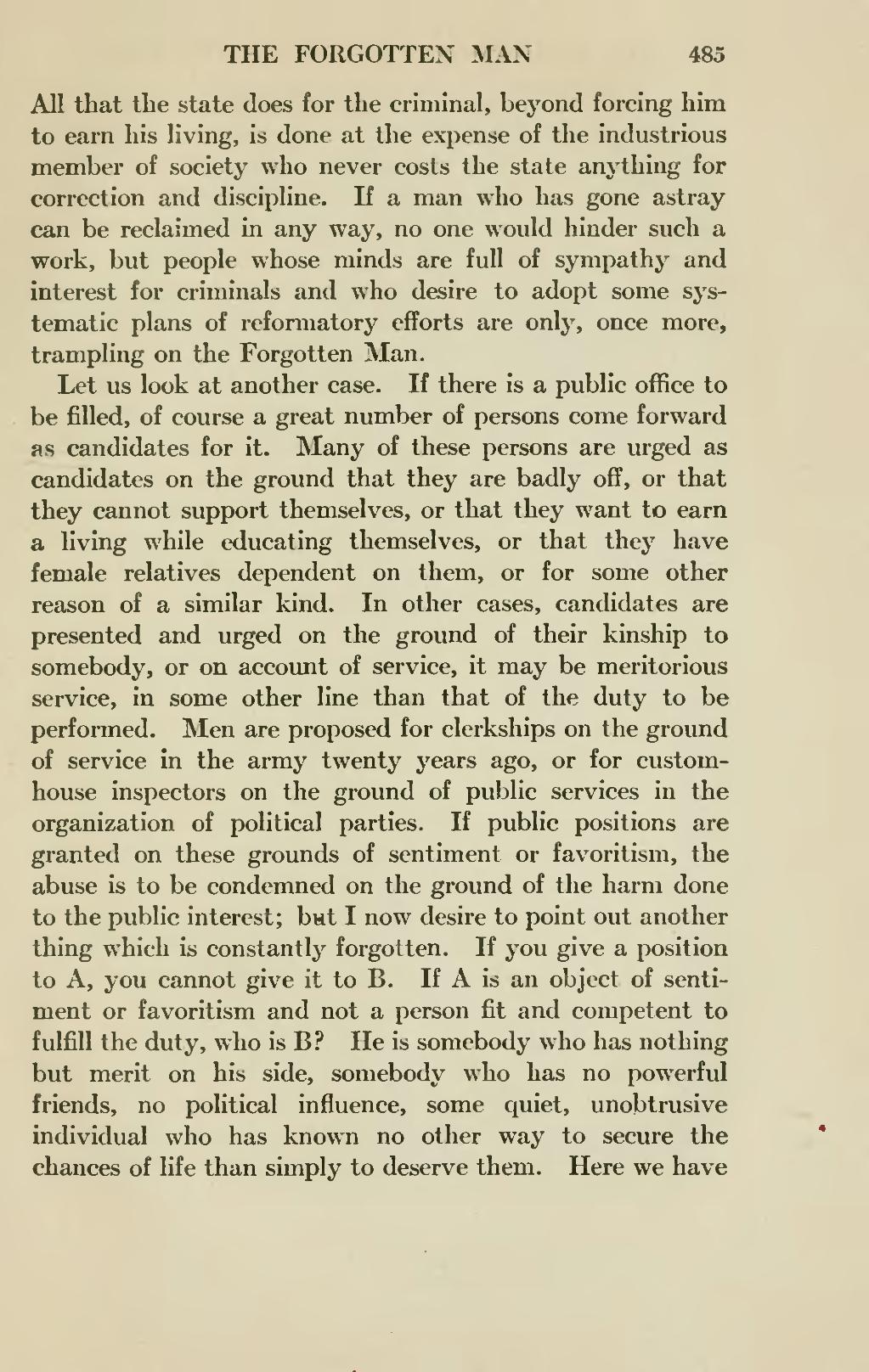All that the state does for the criminal, beyond forcing him to earn his living, is done at the expense of the industrious member of society who never costs the state anything for correction and discipline. If a man who has gone astray can be reclaimed in any way, no one would hinder such a work, but people whose minds are full of sympathy and interest for criminals and who desire to adopt some systematic plans of reformatory efforts are only, once more, trampling on the Forgotten Man.
Let us look at another case. If there is a public office to be filled, of course a great number of persons come forward as candidates for it. Many of these persons are urged as candidates on the ground that they are badly off, or that they cannot support themselves, or that they want to earn a living while educating themselves, or that they have female relatives dependent on them, or for some other reason of a similar kind. In other cases, candidates are presented and urged on the ground of their kinship to somebody, or on account of service, it may be meritorious service, in some other line than that of the duty to be performed. Men are proposed for clerkships on the ground of service in the army twenty years ago, or for custom-house inspectors on the ground of public services in the organization of political parties. If public positions are granted on these grounds of sentiment or favoritism, the abuse is to be condemned on the ground of the harm done to the public interest; but I now desire to point out another thing which is constantly forgotten. If you give a position to A, you cannot give it to B. If A is an object of sentiment or favoritism and not a person fit and competent to fulfill the duty, who is B? He is somebody who has nothing but merit on his side, somebody who has no powerful friends, no political influence, some quiet, unobtrusive individual who has known no other way to secure the chances of life than simply to deserve them. Here we have

